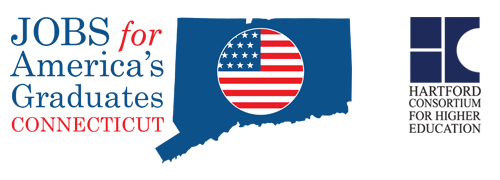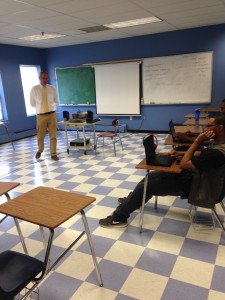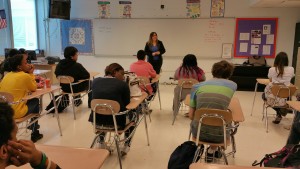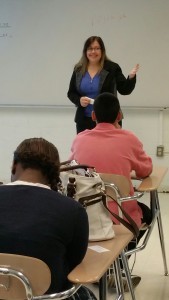Dr. Martin Estey visits New Horizons
New Horizons students were visited today by Dr. Martin Estey, Executive Director of The Hartford Consortium of Higher Education, parent company of JAG CT.
Since his was a new face to most New Horizons students, I introduced Dr. Estey and explained that he would meet individually with each student to ask questions about how they feel about the JAG program.
“Whenever you meet someone new, you never know if that person will have something to offer you,” Dr. Estey stated.
While JAG frequently brings in guest speakers, Dr. Estey showed the importance of proper communication skills by taking each students through a short interview with him. After speaking with all students, he gave a $10 prize to the student who impressed him the most – just as the most impressive candidate in a real job search comes away with the job
Dr. Estey stressed the importance of active listening as well as presenting your own thoughts clearly. “It is so important to always show respect, interest, and professionalism.”
At the conclusion of the exercise Dr. Estey presented senior Nick Davis with a reward. Why Nick? “I was polite and professional, like I always try to be,” Nick explained.
We then discussed, as a class, the importance of presenting a professional self, the dynamics at play when an employer has to select one person for a job, and what specific things students can do to show interest and respect and develop a rapport with people, even when they don’t yet know them well.
A special thank you Dr. Estey for visiting us!

![IMG_0665[1]](http://www.jagct.org/wp-content/uploads/2015/05/IMG_06651-225x300.jpg)

![IMG_0604[1]](http://www.jagct.org/wp-content/uploads/2015/05/IMG_06041-300x225.jpg)
![IMG_0605[1]](http://www.jagct.org/wp-content/uploads/2015/05/IMG_06051-300x225.jpg)

